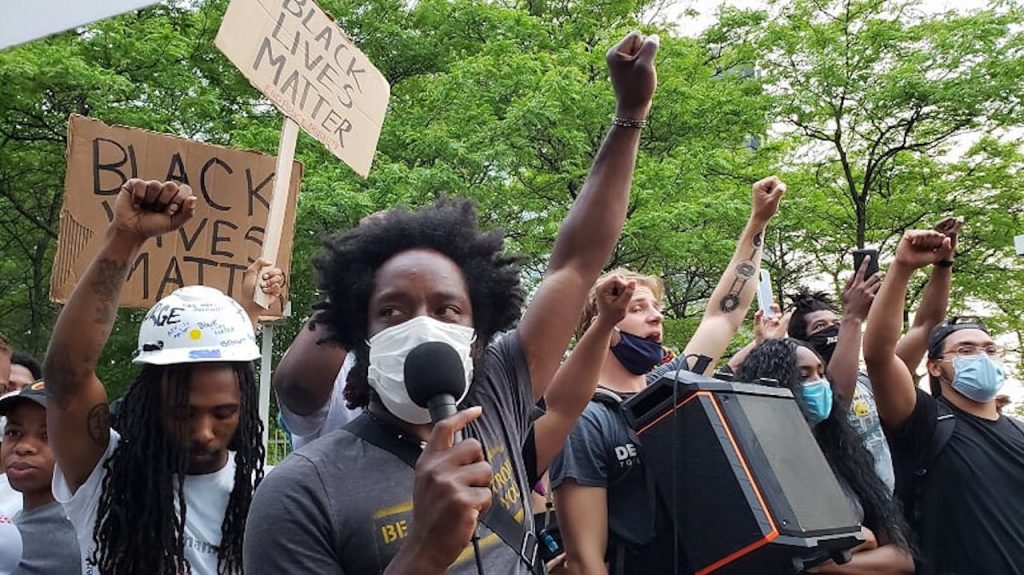Created Equal: Exploring reparations for Black Detroiters
A report from the Detroit Reparations Task Force is expected to be published this year.

Detroit activist Tristan Taylor leads a Black Lives Matter protest in Detroit.
Many cities across the U.S. are exploring the idea of reparations, and Detroit is one of them.
The city created the Detroit Reparations Task Force in February 2023 to better address and research historical discrimination and harm done against Black Detroiters. The 13-member body, approved by 80% of Detroit voters in a 2021 ballot measure, consists of four executive members appointed by the city council president and nine general members.
Though the process has not been without its hurdles — including the resignation of two members — a report from the task force is expected to be published in 2024.
To help explore the various ways Detroit and America at-large can make amends for the wrongs of slavery, Jim Crow laws and the systemic and structural racism those inequalities created, Created Equal host Stephen Henderson spoke with two steering committee members of The African American Redress Network — an organization that provides reparations education and advocacy on the local level.
Guests:
Linda Mann is the co-founder of the African American Redress Network (AARN). Her research focuses on historical injustices and reparations, using voices of people wronged to determine best restorative justice practices. She says AARN aims to fill the gap between research and policy, working alongside communities that are advancing racial justice initiatives at the hyper local level, as well as at the city and state level.
“Because we value community knowledge, we believe that community leaders have the real pulse on their own history and their experiences of harm,” Mann said. “So we look at them as knowledge producers equal and equivalent to any of our researchers at the university, and we co collaborate in all of those processes.”
Justin Hansford is the executive director of the Thurgood Marshall Civil Rights Center. He served as a U.N. delegate on the Permanent Forum on People of African Descent for the 2022-2024 term. He says there are many different ways to explore the idea of reparations beyond the financial, from apologies for past harms to rehabilitation for those harmed.
“Sometimes when you use the term reparations, people just start looking in the mail saying, ‘where’s my check?'” Hansford said. “They start thinking about things from a purely financial lens, which is not something that is what we need in our community — we need more than that.”
Listen to Created Equal with host Stephen Henderson weekdays from 9-10 a.m. ET on 101.9 WDET and streaming on-demand.
Trusted, accurate, up-to-date.
WDET strives to make our journalism accessible to everyone. As a public media institution, we maintain our journalistic integrity through independent support from readers like you. If you value WDET as your source of news, music and conversation, please make a gift today.
